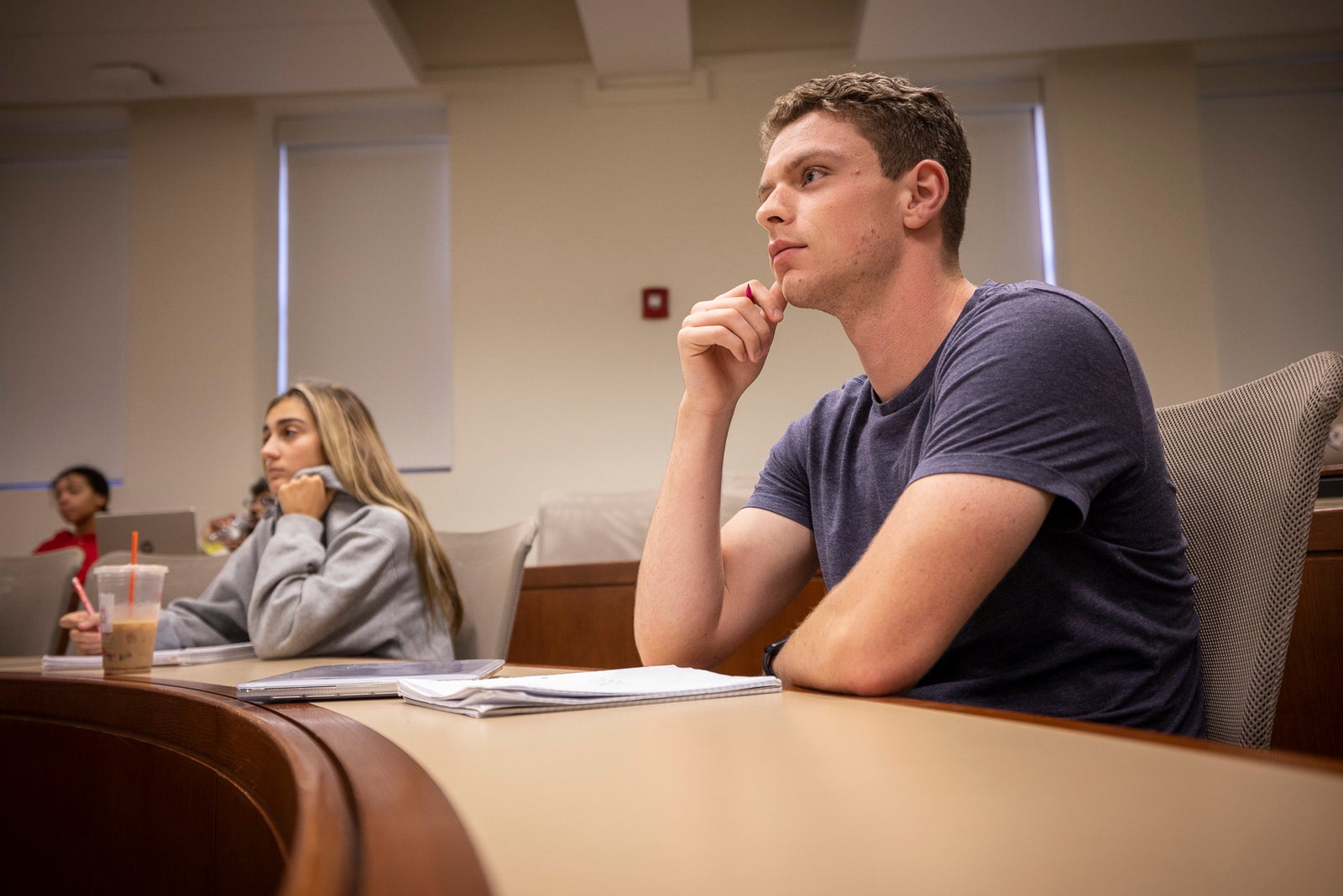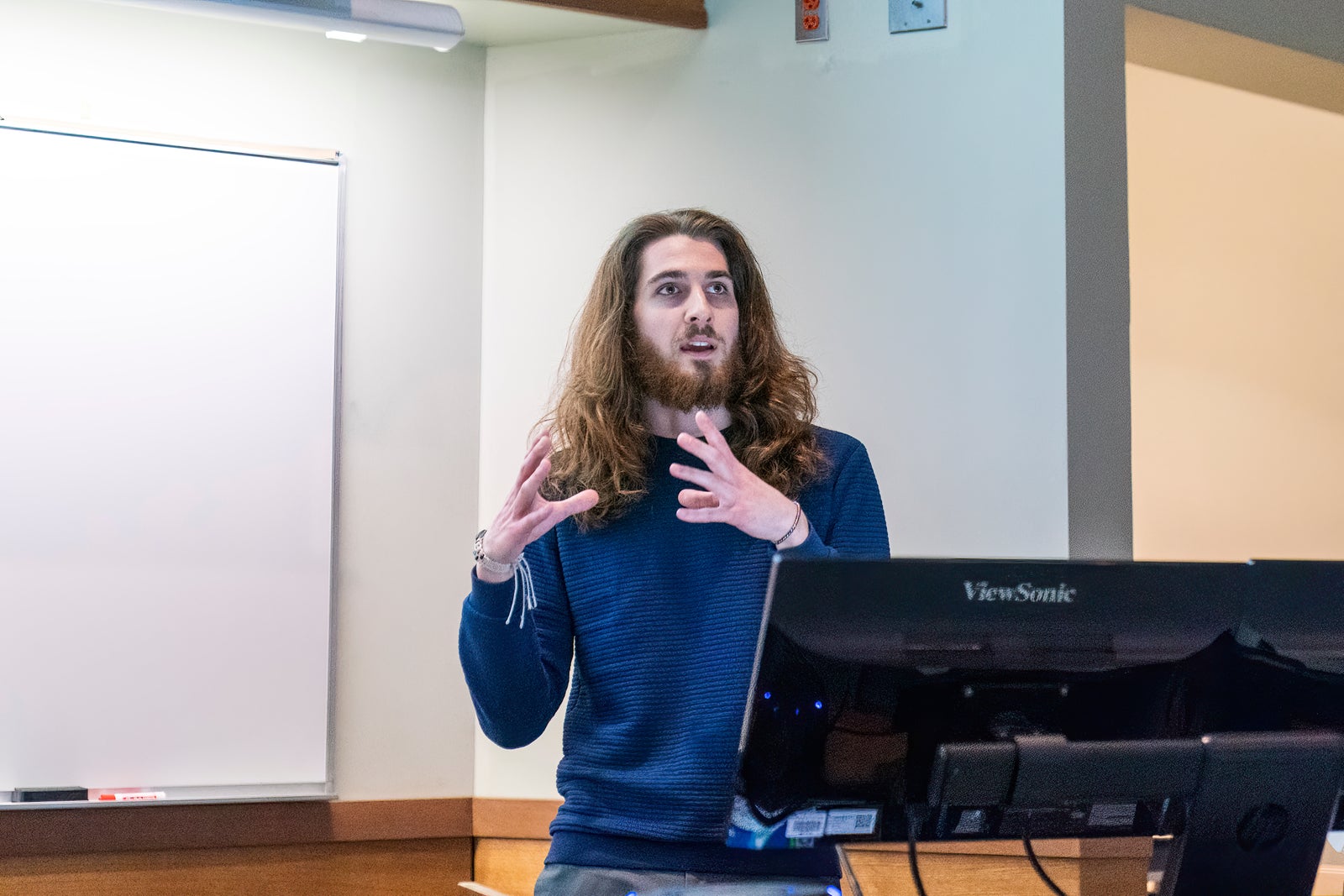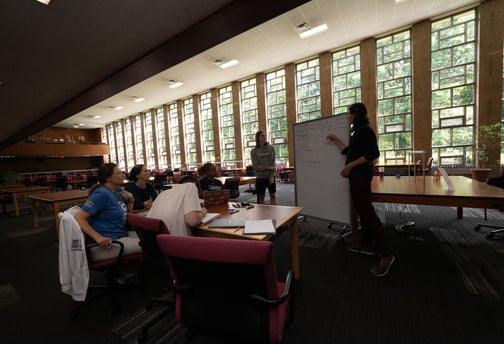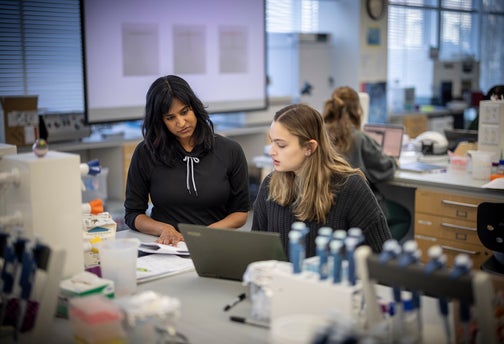How do we turn difficult mental or emotional experiences into opportunities for personal growth and reflection?
The counseling and health concentration in Emmanuel's psychology and neuroscience department provides a foundation of knowledge across a broad range of mental health symptom categories, and enables you to build on this knowledge through an examination of empirically-supported assessment, diagnostic and treatment methodologies for child and adult psychopathology. A variety of schools of therapy are discussed alongside the practice of clinical interviewing and basic counseling skills. This concentration additionally emphasizes the psychophysical bases of health and illness, including an examination of the causes of stress, as well as an introduction to coping and adaptation.
A First-Class Experience
Get to know the people and programs that will define your academic journey.

Student-Faculty Research Highlights: Psychology

Meet the Faculty
Our distinguished faculty publish, exhibit and research. Present, compose and chair. Inspire and collaborate.
The Curriculum
View the 2023-2024 Academic Catalog to find course titles, numbers and descriptions.
Requirements for a B.A. in Psychology
- PSYCH1501 General Psychology (SA) (SS)
- PSYCH2209 Physiological Bases of Behavior (SI) (NS) or NEURO2201 Neurobiology with Lab (NSL)
- PSYCH2801 Methods and Statistics I
- PSYCH2802 Methods and Statistics II (QA)
- PSYCH3111 Cognition
Requirements for a B.A. in Psychology with Concentration in Counseling & Health Psychology
- PSY2405 Health Psychology
- PSYCH3210 Child Psychopathology or PSYCH3212 Adult Psychopathology
- PSYCH3601 Counseling Theories and Techniques
- PSYCH4282/PSYCH4283 Research Internship I and II or PSYCH4494/PSYCH4495 Applied Internship I and II
At least one elective from the following:
- PHIL3109 Philosophy of Mind
- PHIL3110 Philosophy of Psychiatry
- PSYCH2203 Social Psychology (SA) (SS)
- PSYCH2210 Theories of Personality
- PSYCH2211 Race, Gender and Sexuality: Intersection of Privilege and Oppression (SA) (SS) (DM)
- PSYCH2303 Child Psychology (SA) (SS)
- PSYCH2304 Adulthood and Aging
- PSYCH2403 Adolescent Development(SA) (SS)
- PSYCH2410 The Psychology of Happiness and Well-being
- PSYCH3101 Seminar: Psychology of Women
- PSYCH3103 Relationships, Marriage and the Family (SA)
- PSYCH3201 Psychology of Language
- PSYCH3404 Emerging and Established Adulthood
The psychology and neuroscience department’s Learning Goals are based on the recommendations of the American Psychological Association and consist of:
- Knowledge and Critical Engagement in Psychology: Students will understand and can apply the major concepts, theoretical perspectives (biological, behavioral, cognitive, developmental, and social), empirical findings, and historical trends in psychology, as well as the APA Code of Ethics.
- Research Methods in Psychology: Students will be able to engage in research design, sampling, data collection, data analysis and interpretation.
- Information and Technological Literacy: Students will be proficient in the use of information and technology for many purposes relevant to the field of Psychology.
- Communication Skills: Students will be proficient in written and oral communication in a variety of formats for educational and professional purposes.
- Personal and Professional Development: Students will understand the links between personal and professional values, knowledge and skills, and academic and career goals.
Where Essential Values and Skills Meet the Real World
Along with areas of knowledge and major requirements, you will cultivate essential values in the classroom and complete two courses in each area:
- Social Justice (SJ): Develop knowledge, skills, values and motivation to participate beneficially in activities of personal and public concern.
- Diversity & Multiculturalism (DM): Understand the complexity of identity the historical truths of different cultural perspectives to address bias and examine contemporary social issues.

One hundred percent of Emmanuel students complete an internship as part of the core curriculum. In a city as dynamic as Boston, your options are bound only by the limits of your curiosity.
Psychology and Neuroscience majors put their classroom- and lab-based learning into practice completing original research alongside faculty or with internships at nearby institutions such as Boston Children’s Hospital, Brigham & Women’s Hospital, Massachusetts General Hospital, McLean Hospital, the Broad Institute, Bay Cove Human Services and more.

In all majors, the Capstone Experience involves completing a significant piece of work that requires the integration and application of learning from multiple courses.
All Psychology majors complete a two-semester capstone experience during senior year, choosing either an applied internship that engages in clinical and professional work at any number of institutions or a research experience that engages in empirical research or an independent study. Either experience sets Emmanuel graduates apart when seeking employment or graduate school admission post-graduation.

Science & Health Spotlight
See more news and stories related to the School of Science & Health


